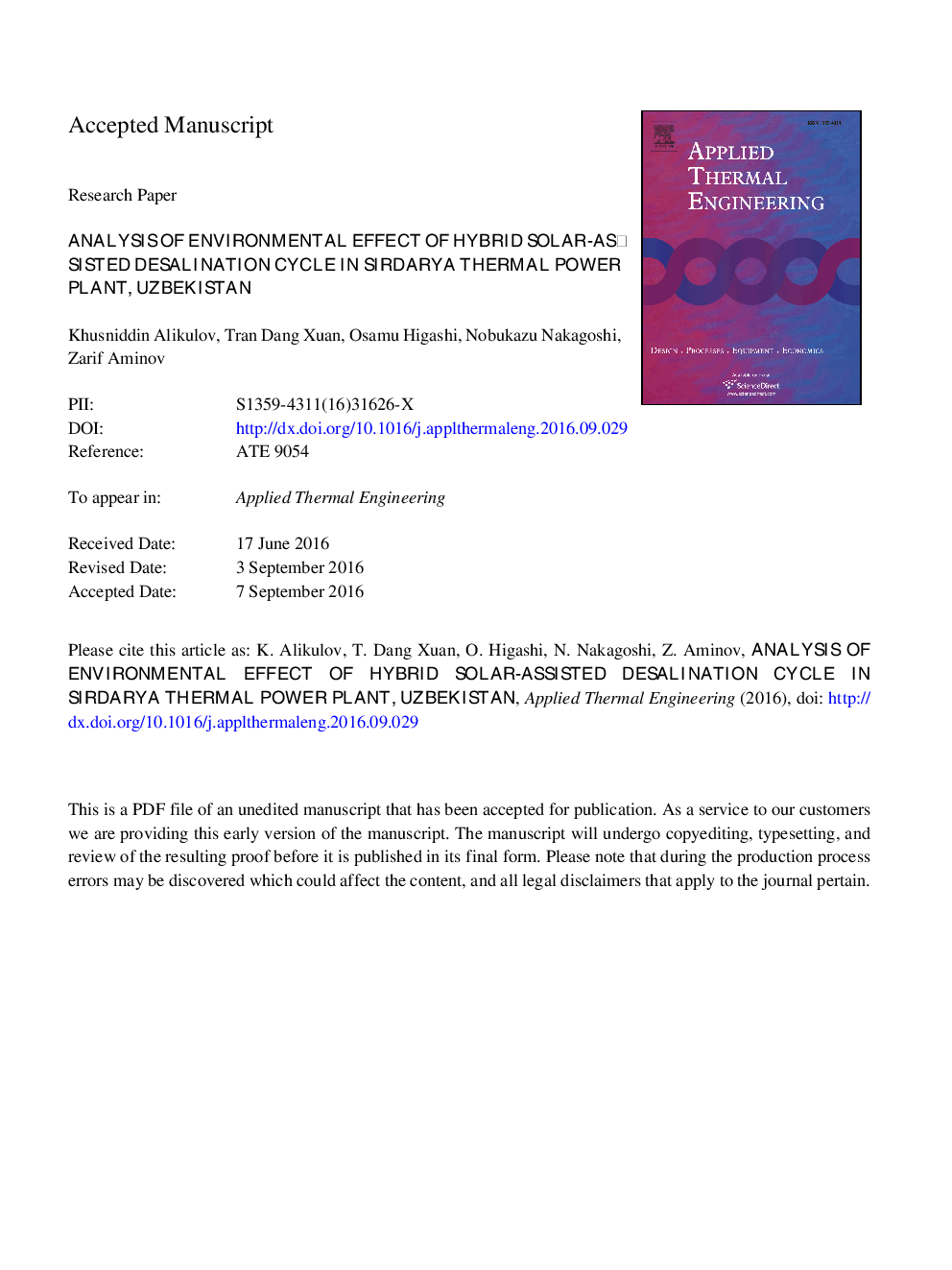| Article ID | Journal | Published Year | Pages | File Type |
|---|---|---|---|---|
| 4992172 | Applied Thermal Engineering | 2017 | 22 Pages |
Abstract
This study was to investigate possible reduction of fossil fuel consumption and carbon dioxide emission in one of energy sectors of Sirdarya Thermal Power Plant (TPP), Uzbekistan. A hybrid solar-assisted desalination cycle has been designed and simulated for partially supplying saturated steam with 200 °C, 8 bar, and 32 t/h parameters to a Multi Effect Distillation (MED) process in the Sirdarya Thermal Power Plant. The outcome of the parental design model stated that maximum, 21,064.00 kW effective solar heat can be achieved, which is equivalent to 31.76 t/h of saturated steam with 200 °C and 8 bar parameters. Total saved fossil fuel in each month proved that it is possible to reduce fossil fuel (heavy oil and natural gas) consumption with 59.64, 95.24, 389.96, and 298.26 tons during available Direct Normal Irradiation (DNI) by using parabolic-trough collectors. Moreover, the above-mentioned fossil fuel savings accounted for CO2 reduction with amounts of 182.50, 255.46, 1045.87 & 799.96 tons per each consistent month. Findings proved that integration of parabolic-trough collectors into the MED process is feasible in terms of high DNI availability and demand for retrofitting old existing heat-consuming facilities in Sirdarya Thermal Power Plant. Besides, the cycle also can be applied in other regions of Uzbekistan with high DNI for generating solar heat. Therefore, conducted study is eligible to be applied on the research site by taking into account of sufficient meteorological data and required steam parameters.
Related Topics
Physical Sciences and Engineering
Chemical Engineering
Fluid Flow and Transfer Processes
Authors
Khusniddin Alikulov, Tran Dang Xuan, Osamu Higashi, Nobukazu Nakagoshi, Zarif Aminov,
